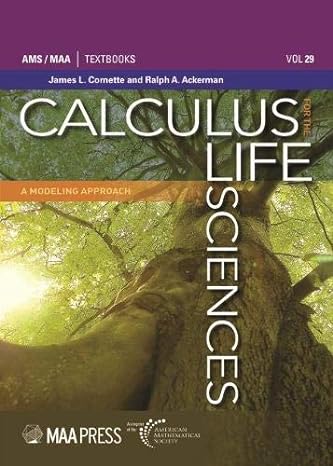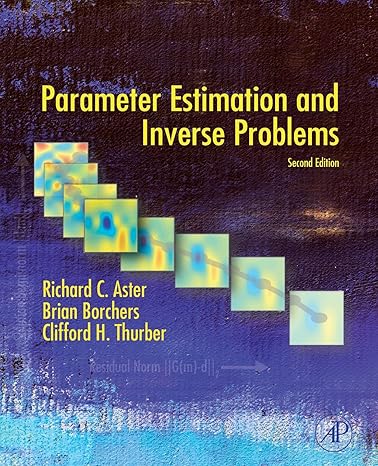Go back


Calculus For The Life Sciences A Modeling Approach(1st Edition)
Authors:
James L. Cornette, Ralph A. Ackerman

Cover Type:Hardcover
Condition:Used
In Stock
Shipment time
Expected shipping within 2 DaysPopular items with books
Access to 30 Million+ solutions
Free ✝
Ask 50 Questions from expert
AI-Powered Answers
✝ 7 days-trial
Total Price:
$0
List Price: $99.00
Savings: $99(100%)
Solution Manual Includes
Access to 30 Million+ solutions
Ask 50 Questions from expert
AI-Powered Answers
24/7 Tutor Help
Detailed solutions for Calculus For The Life Sciences A Modeling Approach
Price:
$9.99
/month
Book details
ISBN: 1470451425, 978-1470451424
Book publisher: American Mathematical Society
Get your hands on the best-selling book Calculus For The Life Sciences A Modeling Approach 1st Edition for free. Feed your curiosity and let your imagination soar with the best stories coming out to you without hefty price tags. Browse SolutionInn to discover a treasure trove of fiction and non-fiction books where every page leads the reader to an undiscovered world. Start your literary adventure right away and also enjoy free shipping of these complimentary books to your door.
Book Summary: Calculus for the Life Sciences is an entire reimagining of the standard calculus sequence with the needs of life science students as the fundamental organizing principle. Those needs, according to the National Academy of Science, include: the mathematical concepts of change, modeling, equilibria and stability, structure of a system, interactions among components, data and measurement, visualization, and algorithms. This book addresses, in a deep and significant way, every concept on that list. The book begins with a primer on modeling in the biological realm and biological modeling is the theme and frame for the entire book. The authors build models of bacterial growth, light penetration through a column of water, and dynamics of a colony of mold in the first few pages. In each case there is actual data that needs fitting. In the case of the mold colony that data is a set of photographs of the colony growing on a ruled sheet of graph paper and the students need to make their own approximations. Fundamental questions about the nature of mathematical modeling trying to approximate a real-world phenomenon with an equation are all laid out for the students to wrestle with. The authors have produced a beautifully written introduction to the uses of mathematics in the life sciences. The exposition is crystalline, the problems are overwhelmingly from biology and interesting and rich, and the emphasis on modeling is pervasive.
Customers also bought these books
Frequently Bought Together
Top Reviews for Books
Sara James
( 5 )
"Delivery was considerably fast, and the book I received was in a good condition."










